5. Heart of Glass (1976)
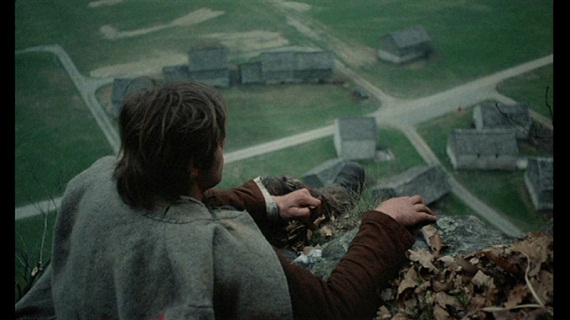
Directed by the German filmmaker Werner Herzog, “Heart of Glass” (“Herz aus Glas”) is mind blowing tale about power and corruption.
The film is set in a 18th-century Bavarian town, where a glass factory produces a rare piece of red ruby glass. The foreman of the glassworks is the only person that knows the secret to producing the mythical red ruby glass.
When he suddenly dies without revealing the secret, the local Baron who is also the factory owner becomes obsessed with the lost secret. Unfortunately, he is unable to discover the hidden secret and as a result he descends along with the rest of the town into depression and madness. The Baron begins to lose his sanity believing that the red ruby has magical powers. The whole story is presented through the eyes of Hias, a prophet who predicts the destruction of the factory.
It is quite obvious that “Heart of Glass” is an experimental film with improvised dialogues and unconventional techniques. To be more specific, Werner Herzog hypnotized most of the crew members for each scene. In addition, the gorgeous landscapes, the eerie music and the powerful performances create a mesmerizing atmosphere. It is undoubtedly a hypnotizing tale about madness and chaos, that depicts excellently the abyss of the human soul.
Despite the fact that this utterly bizarre film has received some mixed reviews, it is one of the best works of Werner Herzog. It is a hidden jewel of art-house cinema that will definitely be a pleasant surprise for those who love the poetic world of Herzog.
4. The Beekeeper (1986)
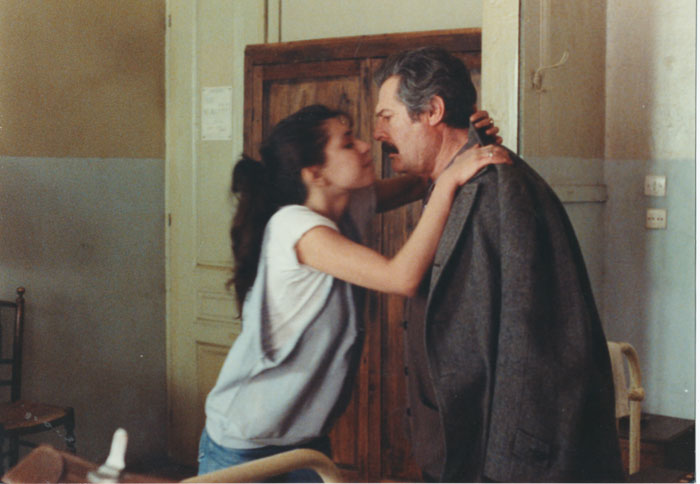
Theo Angelopoulos (“Ulysses Gaze”, “Landscape in the Mist”) creates another philosophical masterpiece about human despair and isolation. Written by the legendary Italian screenwriter Tonino Guerra, “The Beekeeper” is a deep existential drama. This visual poem is the second part of Angelopoulos “Trilogy of Silence” (“Voyage to Cythera”, “Landscape in the Mist”).
Marcello Mastroianni stars as Spyros, a middle aged beekeeper, who embarks on a spiritual journey through the breathtaking landscapes of Greece. He is a retired school teacher in a midlife existential crisis. He makes this trip to not only cultivate his hives, but also find the true meaning of life. When Spyros meets a young girl, everything gets out of control.
It goes without saying that Theo Angelopoulos has managed to create a visually stunning masterpiece. The gorgeous photography of various parts of Greece, the realistic performances and the philosophical subtexture create a hypnotic atmosphere. This is also a philosophical study of existentialism and nihilism. To be more specific, “The Beekeeper” is a bleak depiction of a meaningless world. This is a pessimistic view of life as well as an exercise to magical realism.
On the other hand the performance by the great Marcello Mastroianni is absolutely sensational. This jewel of Greek art-house cinema was even nominated for the Golden Lion Award st Venice Film Festival.
Overall, “The Beekeeper” is a philosophical road movie about isolation and existential despair. A haunting visual experience that will definitely stay with you for a long time.
3. Le Boucher (1970)
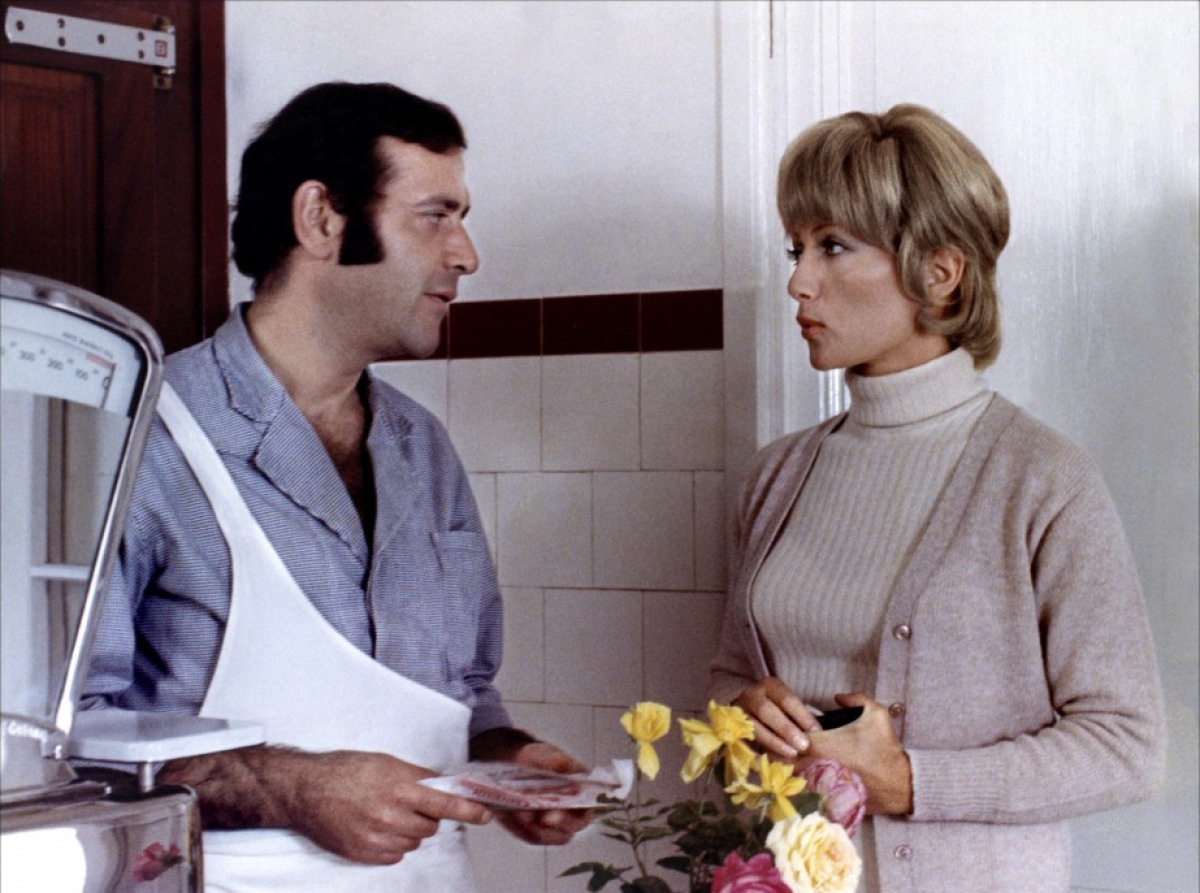
“Le Boucher” is a 1970 French art-house thriller film directed by the pioneer of the French New Wave Claude Chabrol. It is a dark and suspenseful thriller with realistic performances and plot twists.
Set in the village of Tremolat in France, the film follows the story of a troubled butcher Popaul (Jean Yanne) as he falls in love with the lonely headteacher of the local school Helene (Stéphane Audran).
However, Helene refuses a physical relationship since she hasn’t recovered yet from her last relationship. Unfortunately, their relationship is plagued by a ferocious unknown serial killer that terrorizes this picturesque French village. When Helene suspects that the killer might be Popaul, she discovers the truth about her new friend.
It is quite obvious that Claude Chabrol has managed to create a Hitchcockian thriller with unexpected plot twists. In addition, the sparse use of camera movement, the realistic performances and the great film score create a tense atmosphere. Moreover, Stéphane Audran shines as a lonely headmistress who has to overcome her personal fears to solve these mysterious killings.
To sum up, “Le Boucher” is a triumph of the French art-house cinema as well as a suspenseful thriller. A hidden gem of Chabrol’s filmography for those who enjoy Alfred Hitchcock’s cinema.
2. After Life (1998)
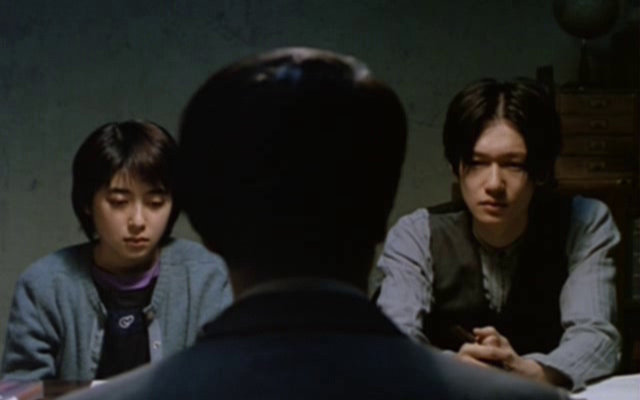
Directed by the Japanese filmmaker Hirokazu Koreeda, “After Life” is a documentary style drama that examines the power of memory. This thought provoking movie is also a meditation on life and death as well as a visual poem about the true essence of humanity.
This unconventional film follows the story of a group of dead counselors who help the recently deceased people to select the single memory that they can take to eternity. It is like a social service office where they process the memories of the recently deceased in order to rest in peace. Once they have selected their best memories, a group of dead filmmakers and workers try to recreate and film these memories. The film is screened in a movie theater which is a passage to heaven.
This experimental film examines the ethical dilemma of reevaluating your own life by selecting a single memory to keep for eternity. It is an optimistic view of the tragic event of death.
On the other hand, this heartwarming drama is an allegory for the process of filmmaking as well as an ode to Japanese cinema. In addition, the realistic interviews, the simple but immensely powerful performances and the innovative script create one of the most beautiful movies of the Japanese art-house cinema.
Taking everything into account, “After Life” is a touching drama with visually stunning cinematography and engaging performances. It is not only a criminally underrated masterpiece of the Japanese art-house, but also an immensely beautiful film that transcends time.
1. Woman in the Dunes (1964)
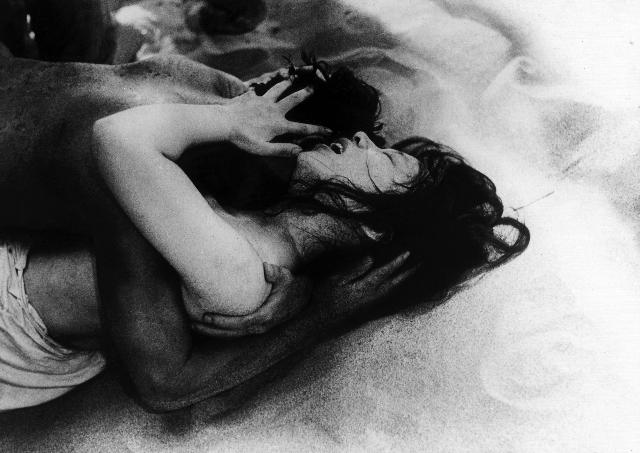
“Woman in the Dunes” is an existential thriller directed by the critically renowned Japanese filmmaker Hiroshi Teshigahara (“The Face of Another”). It was not only praised by the critics upon its release, but also nominated for two Academy Awards.
This haunting metaphysical movie tells the story of an entomologist Niki Junpei (Eiji Okada), who goes on an expedition to search and collect specimens of sand insects. When he misses the last bus to town, the local villagers suggest that he stay at the bottom of a sandpit where a widow (Kyoko Kishida) lives in a shack.
Unfortunately, he soon finds out that he is trapped by the local villagers to stay forever with this mysterious woman as well as to help her in digging sand. He has to not only find a way to escape from this eternal prison, but also stop the advancing sand dunes.
The great Japanese director manages to create a surreal drama with powerful performances and philosophical subtexture. Inspired by Plato’s “Allegory of the Cave”, this extraordinary story stands out as a metaphor for an eternal life imprisonment in the modern world. This is also a philosophical study of existentialism and absurdism. Addionally, it is a profound masterpiece with breathtaking photography and spellbinding performances.
Overall, “Woman in the Dunes” is probably one of the most underappreciated art-house movies of all time. It is not only a visually stunning film with dreamlike sequences, but also a genuinely disturbing thriller with great characters.